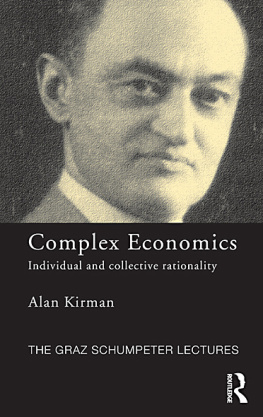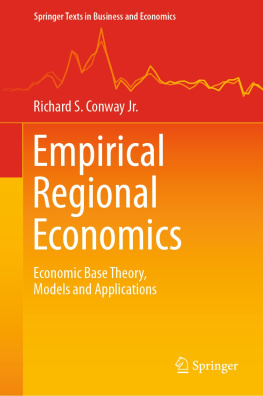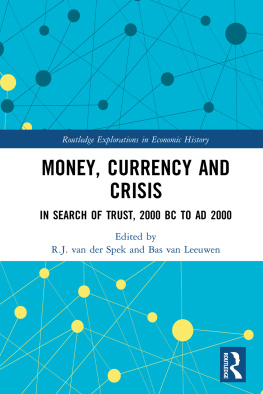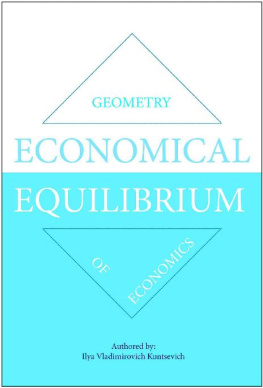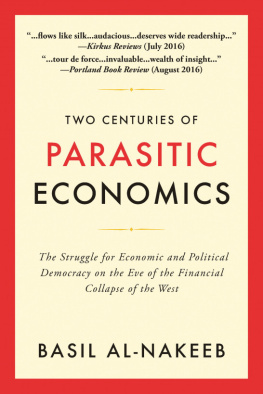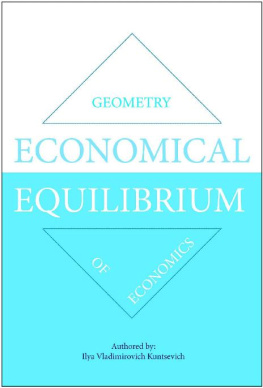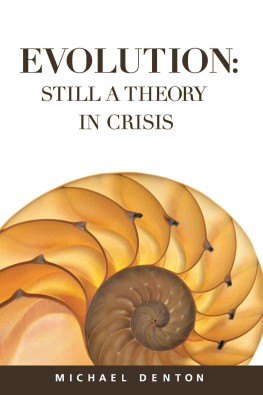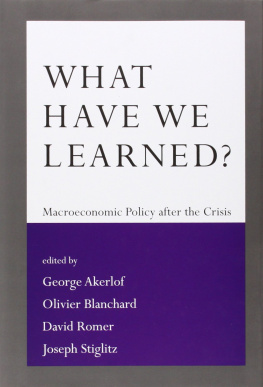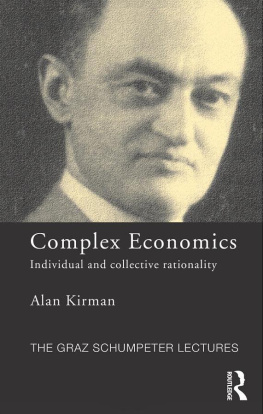Complex Economics
The economic crisis is also a crisis for economic theory. Most analyses of the evolution of the crisis invoke three themes contagion, networks and trust yet none of these play a major role in standard macroeconomic models. What is needed is a theory in which these aspects are central. The direct interaction between individuals, firms and banks does not simply produce imperfections in the functioning of the economy but is the very basis of the functioning of a modern economy. This book suggests a way of analysing the economy which takes this point of view.
The economy should be considered as a complex adaptive system in which the agents constantly react to, influence and are influenced by, the other individuals in the economy. In such systems, which are familiar from statistical physics and biology for example, the behaviour of the aggregate cannot be deduced from the behaviour of the average or representative individual. Just as the organised activity of an ants nest cannot be understood from the behaviour of a representative ant, so macroeconomic phenomena should not be assimilated to those associated with the representative agent. This book provides examples where this can clearly be seen. The examples range from Schellings model of segregation to contributions to public goods, the evolution of buyerseller relations in fish markets to financial models based on the foraging behaviour of ants.
The message of the book is that coordination rather than efficiency is the central problem in economics. How do the myriad individual choices and decisions come to be coordinated? How does the economy or a market self organise and how does this sometimes result in major upheavals, or to use the phrase from physics phase transitions? The sort of system described in this book is not in equilibrium in the standard sense, it is constantly changing and moving from state to state and its very structure is always being modified. The economy is not a ship sailing on a well-defined trajectory which occasionally gets knocked off course. It is more like the slime described in the book Emergence (Johnson, 2001), constantly reorganising itself so as to slide collectively in directions which are neither understood nor necessarily desired by its components.
Alan Kirman is Professor Emeritus at lUniversit dAix-Marseille lll and lEcole des Hautes Etudes en Sciences Sociales, France.
The Graz Schumpeter Lectures
Previous titles in the series:
Evolutionary Economics and Creative Destruction
J. Stanley Metcalfe
Knowledge, Institutions and Evolution in Economics
Brian J. Loasby
Schumpeter and the Endogeneity of Technology
Some American perspectives
Nathan Rosenberg
Consumption Takes Time
Implications for economic theory
Ian Steedman
Exchange Rates and International Finance Markets
An asset-theoretic approach with Schumpeterian perspective
Erich W. Streissler
An Unholy Trinity
Labor, capital and land in the new economy
Duncan K. Foley
Politics and Economics in the History of the European Union
Alan S. Milward
The Dynamics of Industrial Capitalism
Schumpeter, Chandler, and the new economy
Richard N. Langlois
Growth, Distribution and Innovations
Understanding their interrelations
Amit Bhaduri
Complex Economics
Individual and collective rationality
Alan Kirman
For more information, please visit the Graz Schumpeter Societys website: http://homepage.univie.ac.at/Bernd.Brandl/schumpeter/schumpeter.html No royalties for authors; Graz Schumpeter Society receive sixty copies of the book.
Complex Economics
Individual and collective rationality
Alan Kirman

LONDON AND NEW YORK
For Sylvie
First published 2011
by Routledge
2 Park Square, Milton Park, Abingdon, Oxon, OX14 4RN
Simultaneously published in the USA and Canada
by Routledge
270 Madison Avenue, New York, NY 10016
Routledge is an imprint of the Taylor & Francis Group, an informa business
This edition published in the Taylor & Francis e-Library, 2010.
To purchase your own copy of this or any of Taylor & Francis or Routledges collection of thousands of eBooks please go to www.eBookstore.tandf.co.uk.
2011 Alan Kirman
The right of Alan Kirman to be identified as author of this work has been asserted by him in accordance with the Copyright, Design and Patent Act 1988.
All rights reserved. No part of this book may be reprinted or reproduced or utilised in any form or by any electronic, mechanical, or other means, now known or hereafter invented, including photocopying and recording, or in any information storage or retrieval system, without permission in writing from the publishers.
British Library Cataloguing in Publication Data
A catalogue record for this book is available from the British Library
Library of Congress Cataloging-in-Publication Data
Kirman,A.P.
Complex economics: individual and collective rationality / by Alan Kirman.
p. cm.
Includes bibliographical references and index.
1. Economics. I. Title.
HB171.K514 2010
330dc22 2010001994
ISBN 0-203-84749-0 Master e-book ISBN
ISBN 13:
978-0-415-56855-5 (hbk)
978-0-203-84749-7 (ebk)
Contents
List of tables
3.1 | Number of transactions and weight for main TCs, buyers and sellers |
5.1 | The NE and the CO values for the four treatments for one group |
5.2 | The symmetric NE and the CO values for the four treatments for one subject |
5.3 | Average total contribution in treatments H, 1N, 1P and 2N |
List of figures
1.1 | The common knowledge problem |
2.1 | The information structure in the Walrasian model* |
2.2 | A neighbourhood in the standard interaction model with agents located on a grid* |
2.3 | The links between n players in a standard non-cooperative game* |
3.1 | The price distribution for two types of fish over a week |
3.2 | Price distribution for whiting for each of three successive months |
3.3 | Who is learning? |
3.4 | Pricequantity relationship for sole, (a) for buyer 1 and (b) for buyer 2* |
3.5 | Example of non-parametric smoothing fit for the aggregate pricequantity relation for sardines |
3.6 | The aggregate pricequantity relation across all fish |
3.7 | The transition from random buying to loyalty as a function of  |
3.8 | The probabilities of buyers visiting the three sellers when  is low (a) and high (b)* is low (a) and high (b)* |

